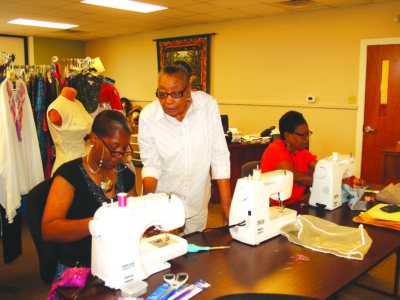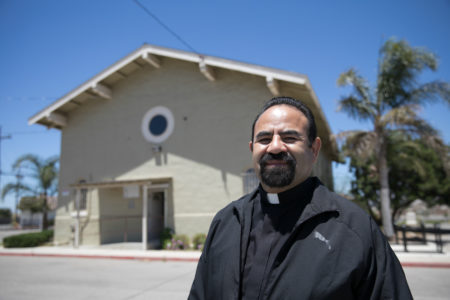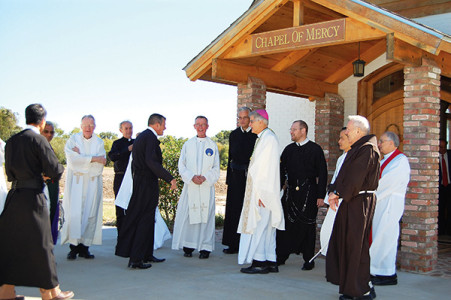By Maureen Smith
MOUND BAYOU – The staff and clients at St. Gabriel Mercy center were honored to be ranked among the finalists for the Lumen Christi Award. This year, the organization recognized eight ministries across the country for their work in bringing Christ to the margins. Extension wrote brief profiles online of the finalists and offered longer features in its fall magazine. They include the winner, Father Enrique Herrera, a pastor in California working to send the immigrant children in his care to college, a military chaplain helping heal the wounds of war, two pastors working with Native American populations, women religious bringing the gospel to their dioceses and lay leaders welcoming a booming Hispanic population in their communities. The St. Gabriel Center was in the middle of this amazing group of evangelizers and pastors. The Sisters of Mercy opened the center. It is now run by a community of Franciscan Sisters of Christian Charity and a staff of local lay people. Education is at the center of the work there. Teenagers and young adults attend GED classes, adults learn how to sew and sell their creations, and the Parents as Teachers program demonstrates how to become better advocates and caregivers. The senior program offers a meal, exercise and activities. On a Thursday morning in August, the center was packed. Every program was in session, including a birthday party for the seniors. “It’s always busy,” said Mavis Honorable, COO. “We just prayed that God’s will be done,” said Sister Monica Mary DeQuardo, executive director of the center, when she found out they were among the finalists. She was delighted that the work of her predecessors and present staff caught the attention of Bishop Joseph Kopcaz and Catholic Extension. She and the staff released a joint statement about this year’s winner. “We acknowledge the contributing and outstanding efforts of Father Enrique Herrera in his Faith Community of Holy Trinity Church in the Salinas Valley of the Diocese of Monterey, Calif. There is no doubt that Father Enrique is a very pivotal person – as pastor – in the continuing education and Catholic social outreach for the many Hispanic people of his parish as well as the civic community of Greenfield and surrounding areas where the Catholic Church is growing immensely and rapidly,” it read. Sister DeQuardo and Sister Emy Beth Furrer have served at the center for the past two years. Much of the lay staff, including Honorable, Trena Robinson, development director, are natives of Mound Bayou and proud of their Delta town. It remains the oldest all-black community in the United States. It was founded by freed slaves and boasted a booming local economy, healthcare and a train station in days past. Today, much of the industry has left, and with it, much of the population. In recent years, groups have started working to preserve the heritage in this town. Honorable takes visitors on a tour, showing them the elegant founder’s houses, which are under renovation with hopes of becoming bed-andbreakfast destinations; and a modern medical complex where residents can get a low-cost ride to visit a doctor or dentist. Honorable said when she was younger, the complex was a collection of trailers. Peter Wood and his brothers still operate Peter’s Pottery just across a field from the center, drawing collectors from across the Southeast to the heart of the Delta. St. Gabriel is also expanding. Youth volunteers from Biloxi and Hattiesburg have transformed the old church building into classroom spaces. Sister DeQuardo hopes to expand adult education into those rooms. “Many of our parents can’t help their kids in school, because they are lacking in education,” said Sister DeQuardo. The project was moving along nicely, but stalled this summer. “We need a new roof,” she explained. Heavy summer rains revealed a leak in the newly renovated building. Honorable is in the process of getting bids to replace it. Then, the staff will turn to the task of raising the money. Sister DeQuardo said they also need a van to pick up their seniors. And furniture for the classrooms would be nice. There may be a long list of needs, but the staff is undaunted. They tackle their challenges one at a time. It’s the same way they serve their clients, as individuals with dignity and potential.

MOUND BAYOU – Bobbie Dulaney, center, coordinates the sewing progam for the St. Gabriel Center. On August 15, she works with two of her clients. (Photo by Maureen Smith)


